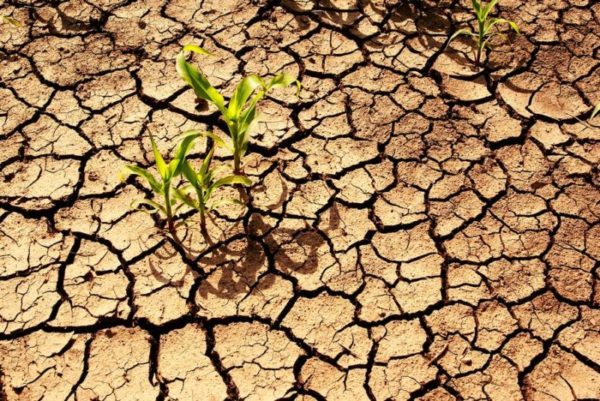
- This event has passed.
Summer School 2024 – Plant science to tackle climate change

This Summer school is co-organized by the French Saclay Plant Sciences (SPS) network and the German Cluster of Excellence on Plant Sciences (CEPLAS).

Mankind is facing an unprecedented challenge from anthropogenic climate change. This is already associated with altered rainfall patterns, extreme weather events and less predictable seasonal patterns, which are expected to increase in the future. Climate change is a major challenge to crop production, food security and therefore to human society.
Agriculture is a victim of climate change but also a culprit since 20-25% of greenhouse gas (GHG) emissions are released through agricultural activities. Without a substantial diet change, the ever-growing world population will require a 70-100% increase of agricultural productivity by 2050 to produce enough food. This must be achieved in a sustainable manner without compromising nutritional quality and in a context of decreasing GHG emissions and increasing C-sequestration to help mitigate global climate change. This complex scenario will require resilient, higher yielding crops having a more efficient use of water and minerals, and suited to climate-change adapted cultivation schemes and practices. Moreover, laboratory/researcher practices will also have to be modified to accommodate low energy-use/low C-footprint research activities.
In this context, the SPS-CEPLAS Summer School 2024 will focus on introducing and discussing strategies, techniques and practices to carry out next generation plant research aimed at improving sustainable climate-change friendly plant productivity.
The summer school will bring together outstanding and enthusiastic young scientists (PhD students and young post-docs) and high-level researchers from all over the world in order to exchange knowledge and ideas. It is limited to a small group of participants (20 maximum) to privilege informal interactions and scientific discussions.
Provisional program and speakers
Download the provisional program of the Summer School
This Summer School will include:
> Theoretical modules and discussions (~18 hours):
The objective is to address key climate change challenges from the perspective of plant sciences. Scientists will give lectures and lead discussions, giving the participants an insight into the latest research findings and identifying key open questions in the field. Lectures will focus on reducing agricultural GHG emissions, improving plant productivity/resilience to climate change, and the challenges of next generation low energy-use/low C-footprint research. They will be presented in 4 sessions comprising a general overview followed by more focused research/technical talks from invited experts.
N-inputs & emissions
Concepts addressed: N-use-efficiency in crop species, N signalisation, allocation & remobilization, N metabolism & microbes in the context of climate change
Confirmed speakers:
Jacques Le-Gouis, (GDEC, Clermont-Ferrand, France)
Anne Krapp (IJPB, Versailles, France)
Fabien Chardon (IJPB, Versailles, France)
Alia Dellagi (IJPB, Versailles, France)
CO2 capture and C sequestration
Concepts addressed: Improving photosynthesis, sugar transport & partitioning, C-sequestration in trees and soil
Confirmed speakers:
Amanda Cavanagh (Essex University, UK)
Sylvie Dinant (IJPB, Versailles, France)
Philippe Ciais (LSCE, Saclay, France)
Plant resilience to predicted climate change conditions
Concepts addressed:
The interaction of elevated atmospheric CO2 with plant mineral nutrition & abiotic stresses, stomata & stress signalling, the influence of bacteria on environmental stress resilience & N-nutrition, the influence of climate change on biotic stress resistance and computational modeling of photosynthetic acclimation
Confirmed speakers:
Rosa Morcuende (IRNASA, Salamanca, Spain)
Hannes Kollist (Institute of Technology, Tartu University, Estonia)
Antoine Martin (IPSiM, Montpellier, France)
Daniela Ristova (Institute for Plant Sciences, Cologne University, Germany)
Guillem Rigaill (IPS2, University Paris-Saclay, Gif-sur-Yvette, France)
Marina Cotta (MPIPZ, Cologne, Germany)
Heribert Hirt (KAUST, Saudi Arabia)
Axel de Zélicourt (IPS2, University Paris-Saclay, Gif-sur-Yvette, France)
Richard Berthomé (LIPME, Toulouse, France)
Anna Matuszynska (RWTH Aachen University, Germany)
Future research practices & opportunities
Concepts addressed:
How to reduce the C-footprint of scientific research & implement and promote environmentally friendly research practices, agroecology, biodiversity & climate change, and how to help farmers move towards a climate change sustainable agriculture
Confirmed speakers:
Jean Colcombet (IPS2, University Paris-Saclay, Gif-sur-Yvette, France)
Paul Leadley (ESE, IDEEV, University Paris-Saclay, Gif-sur-Yvette, France)
Sophie Gendre (Arvalis, France)
> Workshop on outreach and communication (7 hours)
This workshop will be led by Isabel Mendoza of the Global Plant Council. After a presentation on different forms of scientific communication including social media, participants will form groups, given a hot-topic paper on plants & climate change and asked to deliver communications aimed at the general public.
> Collaborative Climate Fresk workshop (3 hours)
Climate Fresk is a powerful tool that provides a quality climate education. It requires all participants to take an active role in building the Fresk by linking causes and effects of climate change.
https://climatefresk.org/
> Participant flash-talks and poster session (5 hours)
Each participant will give a short “get to know me” flash talk at the beginning of the Summer School. The poster session will be organized to allow each participant to discuss his/her poster and to see all posters. It will finish with a general discussion and a “best” poster prize.

